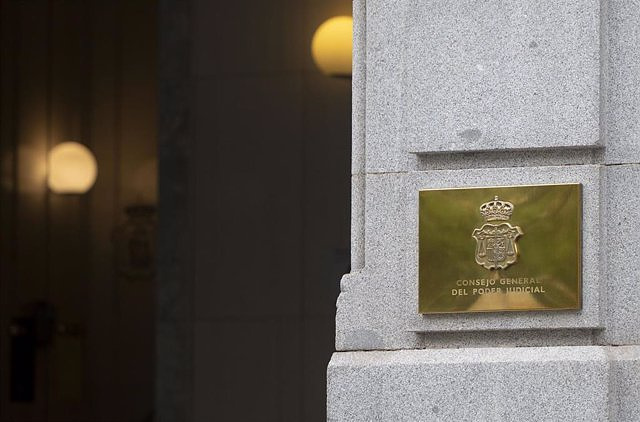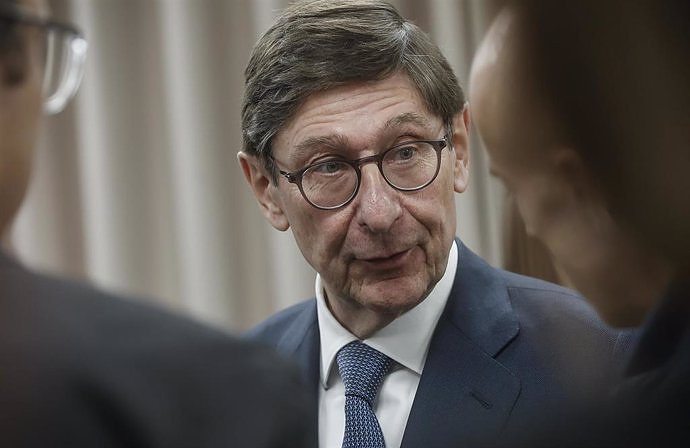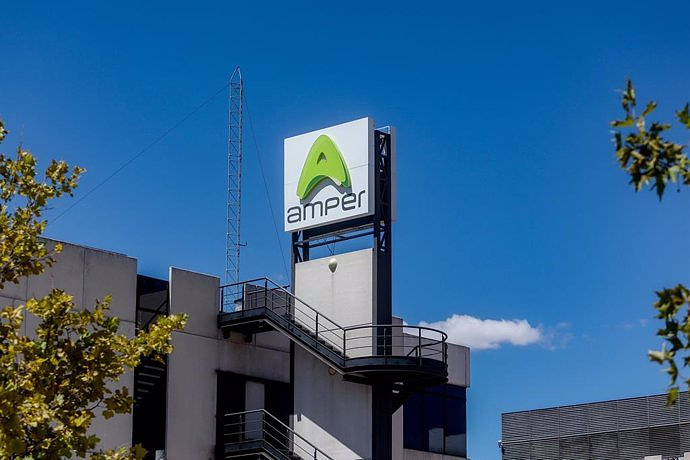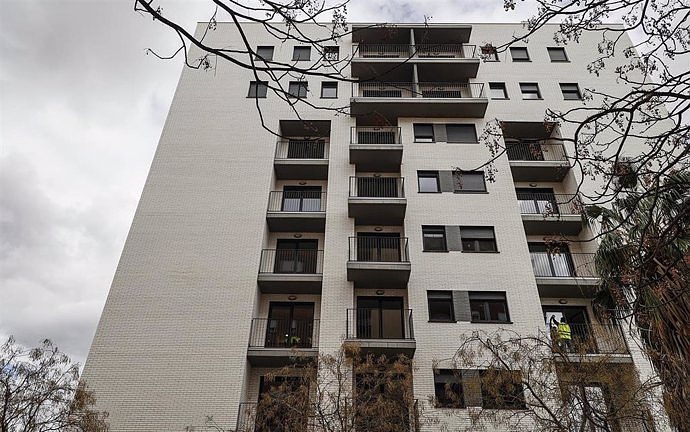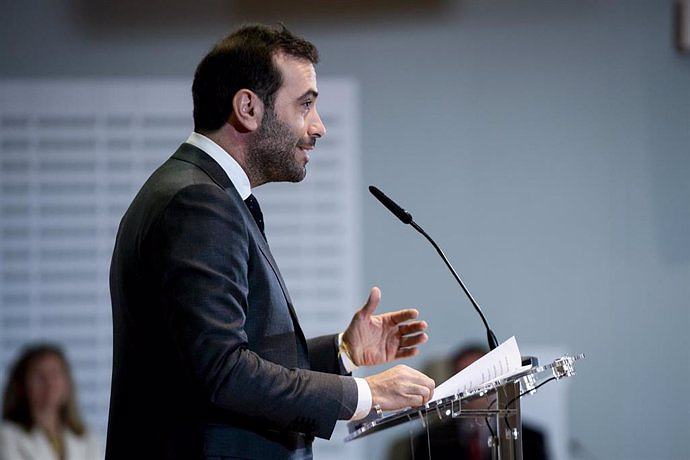The lack of agreement between PSOE and PP has led the CGPJ to almost double its acting mandate
MADRID, 3 Dic. (EUROPA PRESS) -
The General Council of the Judiciary (CGPJ) celebrates four years in office this Sunday. It should have been renewed on December 4, 2018, when the five-year term of its 20 members expired, but the inability of the PP and PSOE to reach an agreement has prevented it, after several attempts, the last of them last October .
The current CGPJ was formed on December 4, 2013 with 20 members that are currently 18 because in these 9 years one of them, Rafael Fernández Valverde, has retired, and another, Victoria Cinto, has died. To this is added the resignation of Carlos Lesmes as president of the Council and of the Supreme Court (TS) on October 9. And the situation could get worse because the interim president of the body, Rafael Mozo, will also retire next year.
The renewal process began on August 3, 2018, when Lesmes informed Congress and the Senate of the opening of the term to present candidacies, since technically the 20 members are elected equally by both chambers, with 10 each --6 between judges and magistrates, and 4 among jurists of recognized competence--. Shortly after, he sent them the list with the 51 pre-candidates of the judicial associations to occupy the 12 seats of the judicial shift.
On November 12, an agreement was announced whereby the PSOE and PP placed the president of the Criminal Chamber of the TS, Manuel Marchena, at the top of the Judiciary, in exchange for there being 11 progressive members and 9 conservatives. .
Within a few days the agreement was blown up. The cause was a message sent by the then PP spokesman in the Senate, Ignacio Cosidó, in the WhatsApp chat of the 146 'popular' senators of the moment. According to what was published at the time, his intention was to calm things down in the face of internal criticism of the pact.
"We obtain the same numerically, but we have an exceptional president, (...) a great jurist with leadership skills and 'auctoritas' so that the votes are not 11-10 but close to 21-0. And also controlling the Chamber Second from behind", said Cosidó.
Thus, December 4, 2018 arrived without a political agreement to name a new CGPJ. Barely a month after, on January 10, Lesmes sent the first of the four letters that he addressed to the presidents of Congress and the Senate to remind them of "the need" to comply with the provisions of article 568 of the Organic Law of Judiciary (LOPJ), which entrusts them to act to renew on time.
His last letter to the Legislative Power was on July 15, 2020, when the general elections of November 10, 2019, which validated the landing of Pedro Sánchez in La Moncloa, after the motion of no confidence in Mariano Rajoy, and in the phase of de-escalation after the first state of alarm declared by the coronavirus pandemic, he thought it appropriate to remind the Courts of that "legal mandate".
Despite this, on September 9, 2019, Lesmes starred in the opening of the judicial year as president of an expired CGPJ. He then warned that the interim situation of the Council was a "serious anomaly" that could contribute to the "discredit" of Justice, although he also expressed hope. He thought that he was in the "final phase" of his Presidency.
Lesmes delivered up to four speeches at the inauguration of the judicial course, each one more forceful than the previous one, while in office. The last one, on September 7, was a turning point because there he slipped a threat of resignation that minutes later he confirmed to the press. PENDING ELECTION CALENDAR
Already located in the second half of 2020, the negotiations between PSOE and PP on the CGPJ were closely linked to the electoral calendar and other political milestones that successively brought the agreement closer and further away.
That autumn, the Government launched two parliamentary initiatives to push the PP to agree: one to lower the majority by which Congress and the Senate elect the 20 members and another to prohibit an expired CGPJ from making appointments to the judicial leadership. Faced with criticism from the opposition, judicial associations and, above all, from Brussels, the Executive withdrew the first but maintained the second, which was approved on March 24, 2021.
The maneuver led the negotiators to sit down at the table again. The conversations between Félix Bolaños and Teodoro García Egea bore fruit and agreed on the pending renewals of the Constitutional Court (TC), the Court of Accounts or the Ombudsman, leaving the CGPJ for later.
At that point, two names blew up the agreement again: Victoria Rosell and José Ricardo de Prada, the two candidates that Podemos wanted to promote to the Council and that the PP refused to accept. After that setback, the Minister of Justice at that time, Juan Carlos Campo, assured that the talks were continuing and that the list was made, in the absence of the PP wanting to make it public.
Campo spoke expressly about the advisability of waiting for the Madrid elections to be held on May 4, 2021. But the political future once again prevailed over the 'road map'. On June 22 of that year, the Government pardoned the nine convicted of the 'procés' and the renewal process stalled again.
On September 20, the PP drew a red line by submitting to a plenary debate in Congress its proposal to change the system for electing members --so that they be chosen by the judges themselves--, an idea that until then it had not become a 'sine qua non' condition and that the Executive rejected.
The change in the leadership of the PP, from Pablo Casado to Alberto Núñez Feijóo, which materialized on April 2, once again fueled hope that was finally dissipated by the electoral call in Andalusia for June 19. This new key date was also passed without results.
Meanwhile, the mandate of 4 of the 12 magistrates of the TC also expired, the third that corresponds to propose to the Government and CGPJ, and Moncloa slipped the possibility of appointing its own without waiting for the Council --something that it has finally done--. Faced with legal doubts, he promoted an express reform of the LOPJ so that the members could designate their two candidates and be able to nominate in 'pack'.
From there, PSOE and PP entrenched themselves in their positions to the point that Lesmes threatened to resign on September 7 in "weeks" and the EU Justice Commissioner, Didier Reynders, visited Spain between the 28th and 30th. of that month to get directly involved in the search for a solution to the crisis in the Judiciary.
Around that visit, Bolaños and Esteban González Pons discreetly resumed contacts to renew the CGPJ, but on the morning of that Sunday, October 9, two WhatsApp messages, one from each negotiator, told Lesmes that the negotiation was dead, according to the sources consulted by Europa Press. That same afternoon, he announced his resignation, a resignation that forced the socialists and 'populares' to resume talks.
The same sources assure that in the following weeks --almost in the following days--, PP and PSOE outlined a global agreement that contemplated the renewal of the CGPJ and even the TC, including the fifth position that Alfredo Montoya left vacant due to illness and that corresponds to cover the Senate. But everything fell apart again when the Government ratified that it intended to reform the crime of sedition.
Although at first the PP separated both issues, after a convulsive day of declarations, the 'populares' announced on the afternoon of October 27 the breakdown of the talks. Legal sources find it difficult for them to be successfully resumed given the electoral calendar.

 Exploring Cardano: Inner Workings and Advantages of this Cryptocurrency
Exploring Cardano: Inner Workings and Advantages of this Cryptocurrency Seville.- Economy.- Innova.- STSA inaugurates its new painting and sealing hangar in San Pablo, for 18 million
Seville.- Economy.- Innova.- STSA inaugurates its new painting and sealing hangar in San Pablo, for 18 million Innova.- More than 300 volunteers join the Andalucía Compromiso Digital network in one month to facilitate access to ICT
Innova.- More than 300 volunteers join the Andalucía Compromiso Digital network in one month to facilitate access to ICT Innova.-AMP.- Ayesa acquires 51% of Sadiel, which will create new technological engineering products and expand markets
Innova.-AMP.- Ayesa acquires 51% of Sadiel, which will create new technological engineering products and expand markets Iran closed its nuclear facilities on Sunday after its attack on Israel
Iran closed its nuclear facilities on Sunday after its attack on Israel RELEASE: ELFBAR focuses on the recyclability of vaping with continuous dedication
RELEASE: ELFBAR focuses on the recyclability of vaping with continuous dedication STATEMENT: IDB Invest meets with investors to present its new business model and capital increase
STATEMENT: IDB Invest meets with investors to present its new business model and capital increase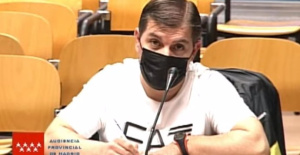 The 'King of Cachopo' admits for the first time from prison that he killed his partner and asks for forgiveness
The 'King of Cachopo' admits for the first time from prison that he killed his partner and asks for forgiveness How Blockchain in being used to shape the future
How Blockchain in being used to shape the future Not just BTC and ETH: Here Are Some More Interesting Coins Worth Focusing on
Not just BTC and ETH: Here Are Some More Interesting Coins Worth Focusing on A team of UPV and iPRONICS manufactures the first programmable and multifunctional photonic chip on the market
A team of UPV and iPRONICS manufactures the first programmable and multifunctional photonic chip on the market 'Science and Reeds' returns with talks about "the mystery of the lost socks" or the vinegar fly
'Science and Reeds' returns with talks about "the mystery of the lost socks" or the vinegar fly They develop smart infrastructure to improve road safety
They develop smart infrastructure to improve road safety They develop a new computer tool to investigate the complexity of the genome
They develop a new computer tool to investigate the complexity of the genome A million people demonstrate in France against Macron's pension reform
A million people demonstrate in France against Macron's pension reform Russia launches several missiles against "critical infrastructure" in the city of Zaporizhia
Russia launches several missiles against "critical infrastructure" in the city of Zaporizhia A "procession" remembers the dead of the Calabria shipwreck as bodies continue to wash up on the shore
A "procession" remembers the dead of the Calabria shipwreck as bodies continue to wash up on the shore Prison sentences handed down for three prominent Hong Kong pro-democracy activists
Prison sentences handed down for three prominent Hong Kong pro-democracy activists ETH continues to leave trading platforms, Ethereum balance on exchanges lowest in 3 years
ETH continues to leave trading platforms, Ethereum balance on exchanges lowest in 3 years Investors invest $450 million in Consensys, Ethereum incubator now valued at $7 billion
Investors invest $450 million in Consensys, Ethereum incubator now valued at $7 billion Alchemy Integrates Ethereum L2 Product Starknet to Enhance Web3 Scalability at a Price 100x Lower Than L1 Fees
Alchemy Integrates Ethereum L2 Product Starknet to Enhance Web3 Scalability at a Price 100x Lower Than L1 Fees Mining Report: Bitcoin's Electricity Consumption Declines by 25% in Q1 2022
Mining Report: Bitcoin's Electricity Consumption Declines by 25% in Q1 2022 Oil-to-Bitcoin Mining Firm Crusoe Energy Systems Raised $505 Million
Oil-to-Bitcoin Mining Firm Crusoe Energy Systems Raised $505 Million Microbt reveals the latest Bitcoin mining rigs -- Machines produce up to 126 TH/s with custom 5nm chip design
Microbt reveals the latest Bitcoin mining rigs -- Machines produce up to 126 TH/s with custom 5nm chip design Bitcoin's Mining Difficulty Hits a Lifetime High, With More Than 90% of BTC Supply Issued
Bitcoin's Mining Difficulty Hits a Lifetime High, With More Than 90% of BTC Supply Issued The Biggest Movers are Near, EOS, and RUNE during Friday's Selloff
The Biggest Movers are Near, EOS, and RUNE during Friday's Selloff Global Markets Spooked by a Hawkish Fed and Covid, Stocks and Crypto Gain After Musk Buys Twitter
Global Markets Spooked by a Hawkish Fed and Covid, Stocks and Crypto Gain After Musk Buys Twitter Bitso to offset carbon emissions from the Trading Platform's ERC20, ETH, and BTC Transactions
Bitso to offset carbon emissions from the Trading Platform's ERC20, ETH, and BTC Transactions Draftkings Announces 2022 College Hoops NFT Selection for March Madness
Draftkings Announces 2022 College Hoops NFT Selection for March Madness